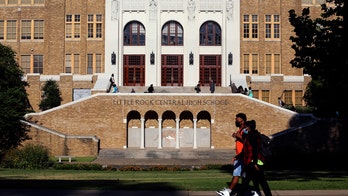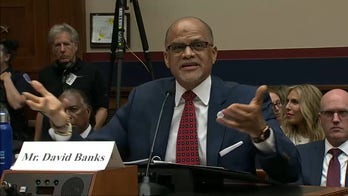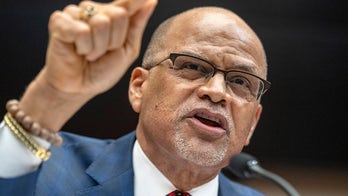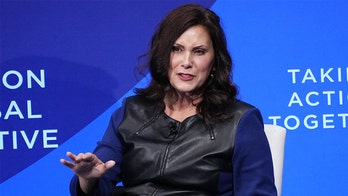At a conference outside Washington, 500 State and local health officials traded lessons from the swine flu outbreak this Spring, and got warning from the federal government that we haven't dodged a bullet just because outbreak wasn't as serious as was feared. Officials say it may come back with a vengeance during regular flu season this Fall. Health Secretary Kathleen Sebelius says it's still not certain there will be a vaccine for the H1N1 strain. It's being tested next month to make sure there's no repeat of the 1976 debacle when the government urged people to take a swine flu vaccine and reactions to it left two dozen people dead, and hundreds more with a neurological disorder.
Sebelius told reporters that scientists are trying to determine "if we have an effective...and a safe vaccine...and what the side effects are." If there is a vaccine, she says, it may need to be distributed in non conventional ways; through schools and day care centers, since the H1N1 strain tends to target young people more than seniors.
Sebelius says the good news is that the H1N1 strain seems to be easily treated with the medications tamiflu and rolenza, and there's plenty of that. And production of this Fall's seasonal flu vaccine is complete, so those production lines can be used for H1N1 vaccine. The bad news is we don't know, yet, if swine flu has mutated this year's seasonal flu and made it more virulent or less susceptible to treatment.
Dr. Thomas Frieden, the head of the Centers for Disease Control, says the flu virus changes "from season to season and from year to year," and he says it rarely becomes less severe. He says vaccination and response plans will depend on how severe both the H1N1 and seasonal flu strains are this Fall.
State and local health officials say the Mexico City outbreak this Spring made an excellent preparatory drill. A Texas school superintendant said the most important thing the federal government can do, is help local officials know when they need to close the schools. Education Secretary Arne Duncan said local school officials should concentrate most on how to keep the kids learning if they do have to shut their doors. In rural communities, where high speed internet may not be widely available, officials say local television stations may need to help, if kids can't go to school.
There were stories of ingenuity, like the New York City school nurse with 100 sick students, one phone line and no medical assistants. Mary Pappas, of St. Francis Preparatory School, said she had to send 102 kids home one day and she was the only health official in the school. Pappas enlisted a security guard as a medical assistant. "I said please just go down the line take their temperature, and I gave him a post it pack and said throw the temperature on their chest." She then had "every child pull out their cell phone...because what child doesn't know where their mother is." Pappas was able to go from child to child and talk to the parents of those with high fevers.




